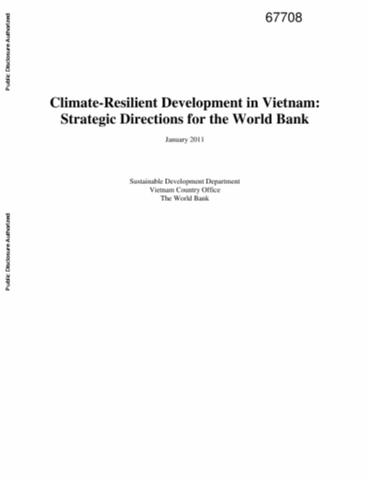Resource information
Weather is the term used to describe the atmospheric conditions (heat, wetness, wind, etc.) prevailing at any one place and time. Climate is the sum of the prevailing weather conditions of a given place over a period of time, typically summed over many decades. This paper seeks to provide strategic directions for mainstreaming support for climate change within the World Bank's broader program of assistance to Vietnam. It does so by reviewing the current understanding of climate change in Vietnam and likely impacts, outlining principles to guide the Bank's engagement in this field, and applying these principles across a range of sectors, taking into account both near- and longer-term considerations. The report identifies elements of the Bank's current and planned portfolio of projects and analytical work that are contributing or will contribute to improved knowledge, planning, and actions, and it points to additional areas where new or more work seems warranted. The report represents a first iteration of a strategy for supporting Vietnam in managing the challenges posed by climate change. As more experience is gathered and as our understanding of both the science and the economics of climate change impacts in Vietnam improves, this strategy will need to be revisited and refined. While the process of climate change is expected to be a long-term phenomenon-with predictions for considerable changes through the second half of the twenty-first century, the focus of this report is on decisions and priorities that should govern the Bank's assistance during this decade. Given an array of uncertainties, extending the developing assistance planning vision much beyond 2020 is not practical. This time frame also corresponds to the government of Vietnam's own planning horizon.


